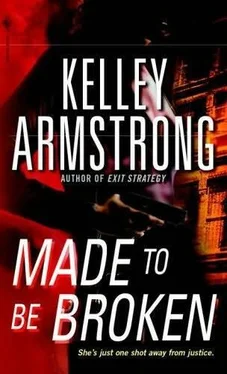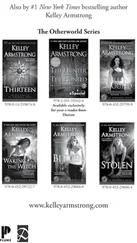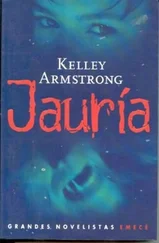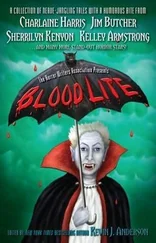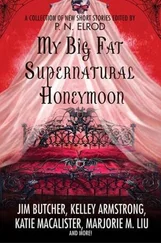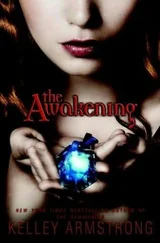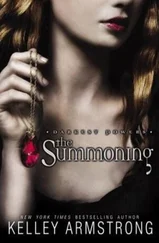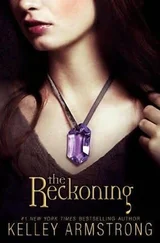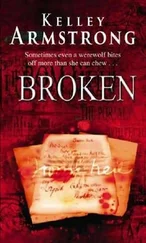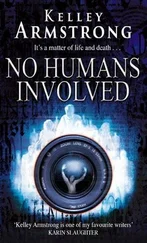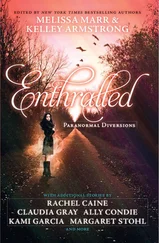
Kelley Armstrong
Made to Be Broken
The second book in the Nadia Stafford series, 2009
Much thanks to the usual group of folks who do their damnedest to make me look good: my agent, Helen Heller, and my editors, Anne Groell of Bantam, Anne Collins of Random House Canada, and Antonia Hodgson of Little, Brown & Co.
Thanks, too, to my first Nadia series beta readers, Chris Wagner and Sharon.
Below the belfry, the city sparkled, the late afternoon sun glinting off the skyscrapers, every surface dripping from a brief shower. A spectacular view… even through the scope of a sniper's rifle.
A pigeon landed on the ledge beneath the belfry, squawking about the rain. My eye still fixed to the scope, I reached into my pocket and tossed a handful of dried corn into the courtyard below. A flapping of wings told me he'd gone for it. The pigeons were the one drawback to this perch. Fortunately, I'd noticed them when scouting and came prepared. I didn't want a sudden flurry of birds from the belfry telling onlookers exactly where the shot had come from.
The doors below opened onto the quiet side street and at exactly five-thirty, out walked Grant Beecham. A creature of habit, like most people. He was alone. I expected that, but found myself instinctively looking for bodyguards or well-armed friends. I was used to Mafia thugs who knew there was a mark on their heads and never set foot outside alone.
But Beecham had no reason to think his life was in danger. He was just a pharmaceutical company researcher. Yes, he'd suppressed reports of fatalities in a new multiple sclerosis drug study. But his confession came only after evidence was found in an illegal search, so it'd been ruled inadmissible, the case thrown out. He hadn't even been fired; he was too valuable.
Sure, there were devastated families who'd lost loved ones, but this wasn't the Wild West. Injured parties seek financial restitution through the courts, and you take the money and shut up. You don't use your payoff to hire a hitman.
Beecham's car rounded the corner. A Lincoln with a driver to take him to his big house in Forest Hill, maybe with a stop along the way to convince another desperate family that he could provide – under the table and for the right price – the suppressed miracle drug.
I pulled the trigger. The bullet passed through the base of his skull, killing him instantly.
I didn't wait to see him crumple to the sidewalk. Or to watch passersby look over warily, assessing the cut of his suit before deciding he hadn't just fallen down drunk. By the time someone took out a cell phone, I'd be halfway down the belfry stairs.
I moved as quickly and silently as I could. Not easy when the steps were so ancient each one protested under my weight.
Dust whirled in my wake. I was wearing disposable booties, the kind considerate furniture deliverers wear. They'd eliminate prints, but did nothing for the dust reaching my nose and eyes. At my second stifled sneeze, a head popped around the bottom flight. Quinn, aka the Boy Scout – though the latter wasn't used by anyone who wanted to get on his good side.
Beecham was Quinn's job. Vigilante work was the only kind he did, hence the unflattering alternate nom de guerre. Among professional killers, a vigilante – even one as solid as Quinn – is viewed with the same disdain a veteran beat cop has for an idealistic, college-educated young detective. A prissy boy who wants to do a man's job without getting his hands dirty.
At six foot two, with a solid linebacker's physique, square face, stubborn jaw, and piercing eyes, Quinn didn't fit anyone's image of a "prissy boy." But few of the hitmen who scorned him had ever seen him. Like me, Quinn kept to himself, and for good reason. Killing criminals wasn't the only way Quinn pursued justice. He was a federal agent. What branch, I had no idea. I didn't ask.
Most people in my profession would have a problem partnering with a cop, even one moonlighting as a hitman. I didn't. I came from a long line of law-enforcement officers. My life goal had been to join that family tradition. And I had… until seven years ago, when I shot a suspect point-blank, made national headlines, and saw my life crash and burn.
As I rounded the last flight, Quinn backed inside. Gaze still fixed on the trash-cluttered courtyard, he unbuttoned his dark overcoat to reveal a suit. I passed him the fake briefcase that housed my takedown rifle. As I tugged off my shoes, he backed in another step and gave me his arm for support. Off with the sneakers, and on with pumps more suited to my slacks and blazer. There was more to our disguises than clothing, but that was all we changed.
I let go of his arm, then slung the leather knapsack with my gear onto my shoulder. Quinn took my hand. We walked quickly through a narrow alley, then slowed to a stroll as we stepped into a paved passage between office towers. At the end, we merged with the commuter crowd heading to the subway.
As we stepped onto the subway stairs, the distant wail of sirens was almost swallowed by the roar of rush-hour traffic.
There are many names for what I do. Want to channel your inner Godfather? Go for hatchet man or hired gun. Prefer an air of legitimacy? Try professional killer or contract killer. Add an air of mystery and intrigue? Use assassin. I like it plain and simple. Hitman. Hitwoman or even hit-person, if one wants to be PC, but if you ask me, "politically correct" and "killer" are two terms never meant to go together.
I moonlight as a hitman to keep my business – a wilderness lodge – open. After the crash of my life seven years ago, the lodge is my lifeline to sanity, and if killing traitors for a small New York crime family keeps it running, then that's fine with me. I know it shouldn't be. But it is.
Quinn doesn't need the money; he needs to scratch the itch that can come with immersing yourself in a justice system that doesn't always see justice done. I exploded on the job and watched my career implode. Quinn found a better way.
I met him six months ago. My mentor, Jack, put together a team to go after a hitman whose foray into serial-killer-hood put us at risk. He'd invited Quinn to keep us abreast of the federal investigation.
Quinn and I had exchanged almost weekly e-mails since. Then, two weeks ago, he said he had a job in Toronto, could use a second pair of hands and eyes, and, knowing I lived somewhere in Ontario, would I be interested.
I'd insisted on taking the shot. I'd been distance shooting since high school and narrowly missed being on the Olympic team. Quinn had started three years ago. When he balked, I'd reminded him that he was risking my safety on his marksmanship. That made him back down.
"Hey, there's the CN Tower," he said as we emerged from the subway. "Earlier it was hidden in the fog."
"Smog."
"I didn't think you got that up here."
"We get everything up here. Except HBO."
He peered up at the tower as we moved away from the commuter crowd. "Nice and clear now, though. Good night to eat in that revolving restaurant."
I made a face. "Overpriced tourist food."
He went quiet. I looked over to see him scratching his chin.
"Unless you want to, of course," I said quickly. "You are a tourist. It might be tough without reservations…" I caught his look. "You made reservations."
"Kind of. Yeah."
"Shit. I'm sorry. Really, I'd love to try it. I've just never had the cash to go."
"I should have asked you first. You're the local. I wanted to take you someplace nice, to say, you know…"
Читать дальше
